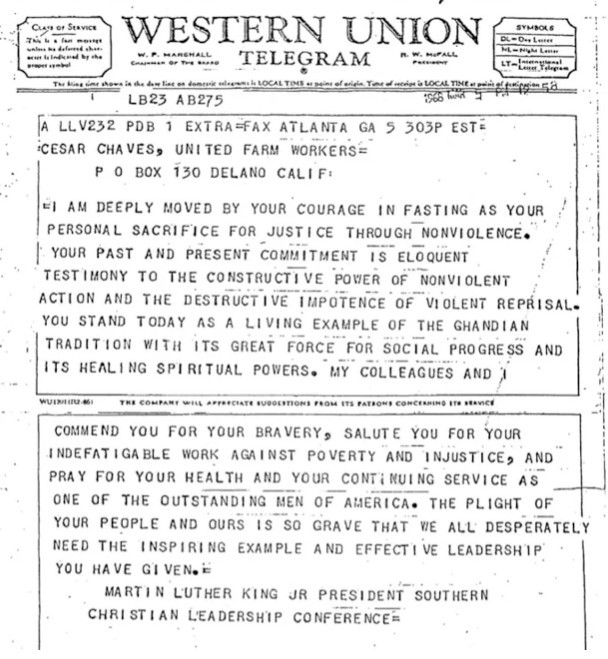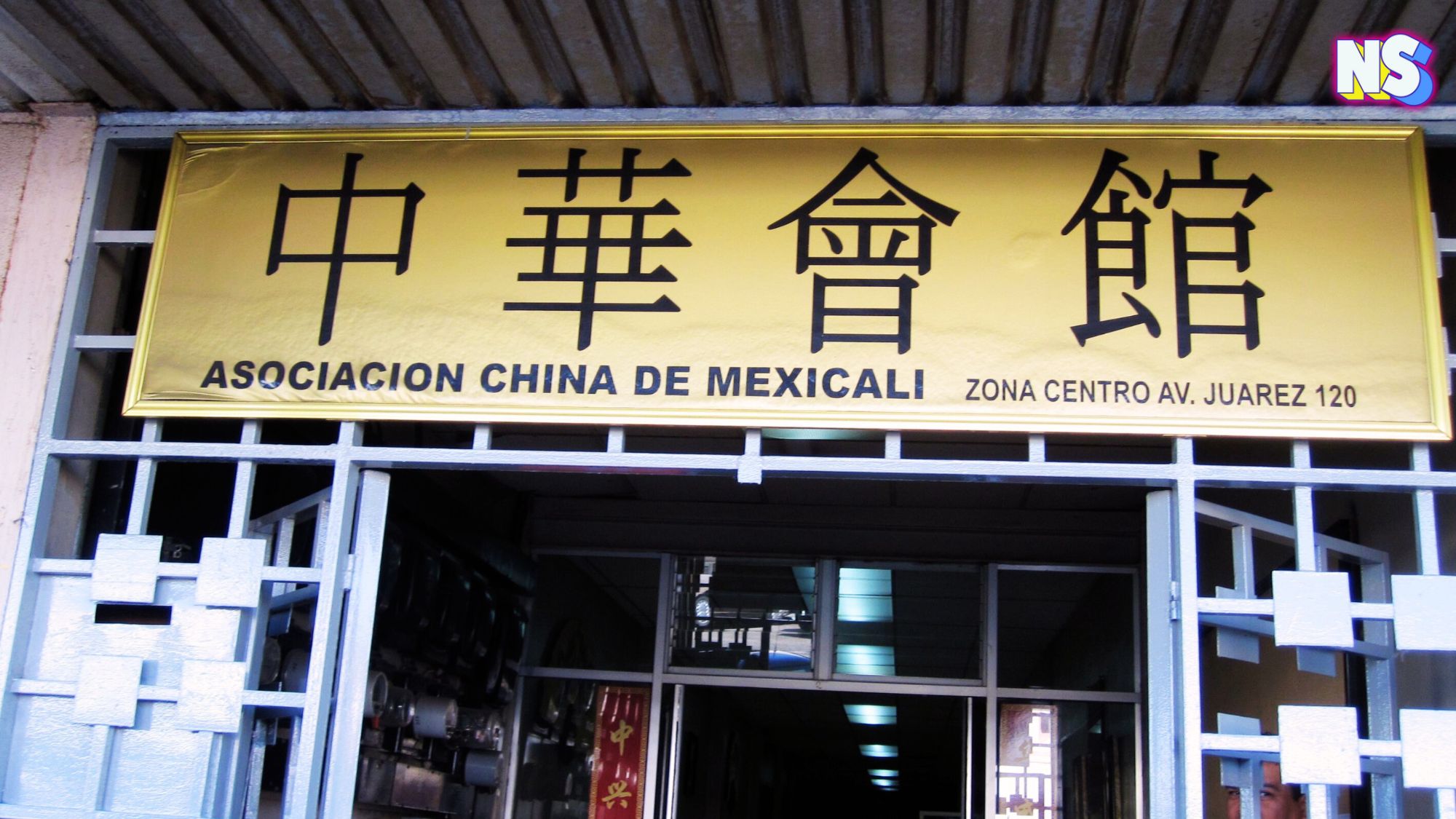Have you ever wondered what would have happened if two of America’s greatest civil rights leaders had joined forces? Though they never met in person, Martin Luther King Jr. and Cesar Chavez shared an extraordinary bond beyond distance, race, and even time.
Their struggles, while rooted in different communities, were interconnected in so many ways, and driven by a shared commitment to justice, dignity, and nonviolence. How do we know? King sent Chavez a telegram at one of the farm worker’s weakest moments.
Martin Luther King’s Words to Cesar Chavez
During the 1960s, both Martin Luther King Jr., the leader of the African American civil rights movement, and Cesar Chavez, the co-founder of the United Farm Workers, were at the forefront of their social justice rights movements. While King led marches for racial equality across the segregated South, Chavez organized farm workers in California, demanding fair wages and humane working conditions for predominantly Latino laborers. Despite their different focuses, the two leaders saw their missions as deeply intertwined.
“Dr. Martin Luther King Jr. and Cesar Chavez didn’t meet, but they corresponded,” The United Farm Workers official site explains.
As Chavez himself once said, “During my first fast in 1968, Dr. King reminded me that our struggle was his struggle too. He sent me a telegram which said, ‘Our separate struggles are really one. A struggle for freedom, for dignity, and for humanity.’”
RELATED POST: United in Purpose: MLK and Chavez’s Enduring Legacies
This telegram, sent during Chavez’s pivotal hunger strike in 1968, reflects the profound respect and camaraderie that existed between the two leaders. In it, King commends Chavez for his courage and nonviolent resistance, stating, “You stand today as a living example of the Gandhian tradition with its great force for social progress and its healing spiritual powers.” (The full telegram is pictured here.)
“I was profoundly moved that someone facing such a tremendous struggle himself would take the time to worry about a struggle taking place on the other side of the continent,” Chavez said later.
Parallel Struggles, Shared Principles
The 1960s were a turbulent time for both movements. King’s fight against segregation and for voting rights faced violent opposition in the South, while Chavez’s campaign for farmworker rights encountered fierce resistance from agricultural corporations. Yet both leaders adhered steadfastly to the principles of nonviolence, drawing inspiration from Mahatma Gandhi and their shared belief in the power of peaceful protest.
King’s dream of a multiracial coalition was mirrored in Chavez’s efforts to unite farmworkers of all backgrounds. As The Rev. William Barber of the Poor People’s Campaign puts it, “The refusal by King to allow Latino farmworkers to be pitted against Black workers or the broader civil rights movement is profoundly significant.”
Chavez echoed this unity in his own words: “We cannot seek achievement for ourselves and forget about progress and prosperity for our community. Our ambitions must encompass the aspirations and needs of others, for their sake and our own.”
Their Legacies Lives On
Tragically, King’s assassination in April 1968 cut short any chance of a direct collaboration between the two leaders. Yet their legacies remain intertwined. Three years before his death in 1993, Chavez delivered a speech titled “Lessons of Dr. Martin Luther King, Jr.” on the 22nd anniversary of King’s assassination. In it, he reflected on their shared vision, calling King “a powerful figure of destiny, of courage, of sacrifice, and of vision.”
Their commitment to justice and equality continues to inspire movements today. From the Poor People’s Campaign to labor rights organizations, the ideals championed by King and Chavez remain as relevant as ever.
What can we learn from two leaders who never met, but whose struggles were so deeply connected? The answer lies in their enduring message: that the fight for justice transcends borders, races, and generations. As we celebrate Martin Luther King Jr. Day, let’s also remember Cesar Chavez and the shared vision they fought for—a world where every individual is treated with dignity and respect. Together, their legacy reminds us that our separate struggles are truly one.





